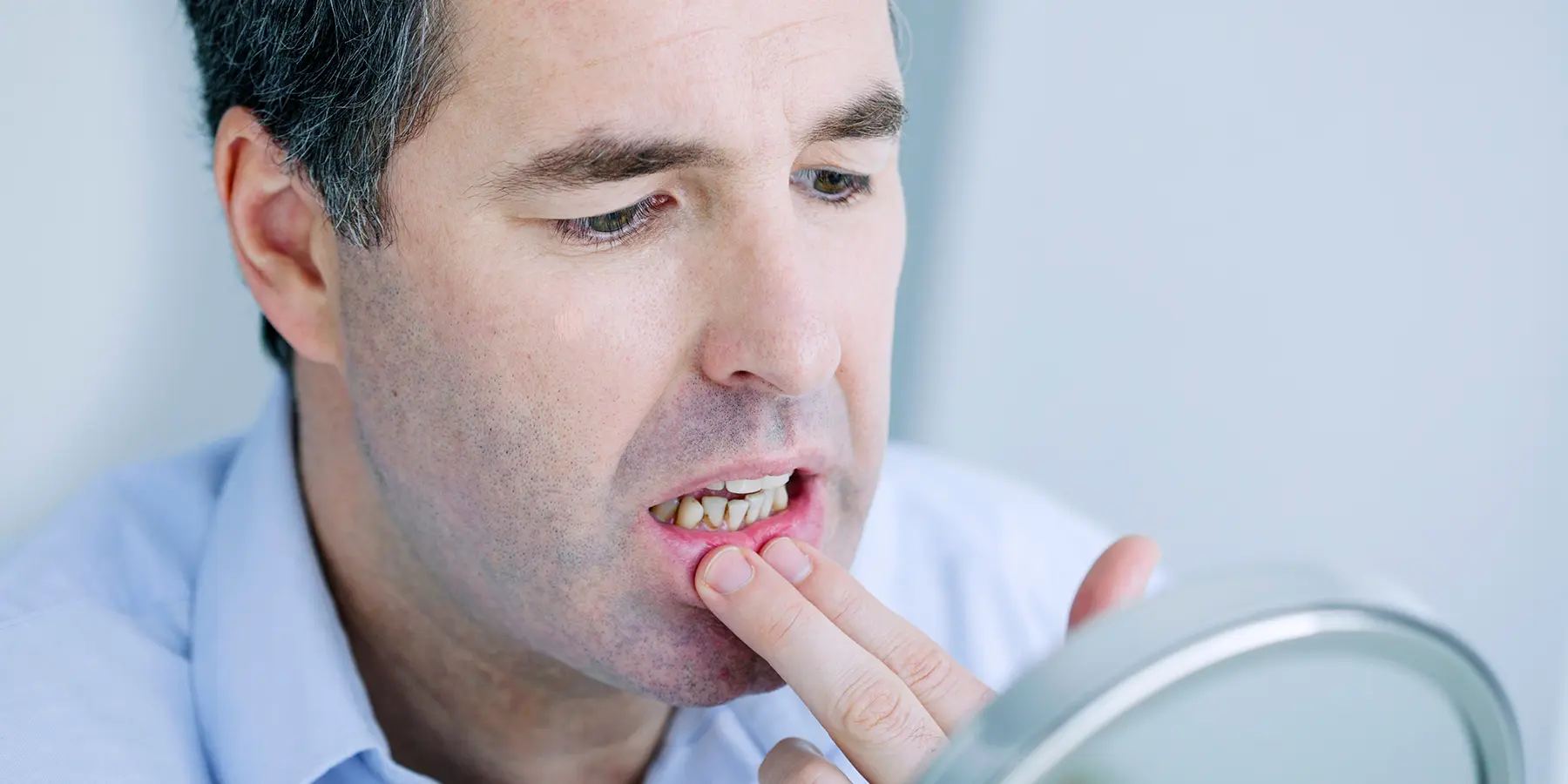
Reviewed by Dr. Matthew Young, DDS
Reading time: four minutes.
It is normal to feel some tooth sensitivity or discomfort after a dental visit, depending on the procedure you had.
This dental pain usually fades within a few days, but understanding why it happens can help you manage it better.
Here is what you need to know about the most common causes of post-dental visit pain and how to care for your teeth.
Table of Contents
- Teeth Cleaning: Sensitivity from Plaque Removal
- Fillings: Soreness from Nerve Irritation
- Teeth Whitening: Sensitivity to Temperature
- Crown or Bridge Placement: Soreness from Adjustment
- Tooth Extraction: Post-Surgical Healing
- Root Canal: Nerve Sensitivity as It Heals
- When to Call Your Dentist
- Book a Dental Visit at Our Dental Office in San Francisco
Key Takeaway
Post-dental visit discomfort is common, but it should be temporary. Sensitivity after cleanings, fillings, crowns, extractions, and whitening treatments happens for different reasons, from nerve irritation to gum inflammation. If pain persists, worsens, or includes signs of infection, schedule a follow-up visit to address the issue promptly.
Teeth Cleaning: Sensitivity from Plaque Removal
A routine dental cleaning removes built-up plaque and tartar, which can leave your teeth and gums feeling sore.
The cleaning process may expose sensitive teeth, making them more reactive to temperature changes. If you had inflamed gums due to gingivitis or early periodontal disease, they may feel tender after the cleaning.
The tools used, especially ultrasonic scalers, can also cause temporary sensitivity. This discomfort should fade in a few days.
Use fluoride toothpaste, avoid hot or cold foods, and rinse with warm salt water to soothe irritation. Stick to a soft-bristled toothbrush and maintain a strong oral hygiene routine to prevent future plaque buildup and keep your gums healthy.
Fillings: Soreness from Nerve Irritation
If you just had a cavity filled, your tooth might feel sore or sensitive.
The drilling process can irritate the nerve inside your tooth, especially if the cavity was deep. It can take time for the nerve to calm down. If the filling sits too high, your bite may feel off, causing discomfort.
Dental fillings made of composite material can sometimes cause temporary sensitivity, especially to cold foods and acidic foods. This discomfort should ease within a few days. If your bite feels uneven, schedule a follow-up visit for an adjustment.
Avoid hard or sticky foods that could put pressure on the filling.
Teeth Whitening: Sensitivity to Temperature
Professional teeth whitening can make your teeth temporarily more sensitive.
Whitening chemicals open the pores in your enamel, exposing the dentin underneath, which reacts more strongly to hot, cold, or sweet foods. This dental sensitivity usually peaks within the first 24 hours and fades within a couple of days.
Use fluoride toothpaste designed for sensitive teeth before and after whitening. Avoid extreme food temperatures, and if the sensitivity persists, schedule a follow up with your dentist.
Crown or Bridge Placement: Soreness from Adjustment
Getting a crown or bridge can cause mild discomfort as your mouth adjusts.
The tooth is reshaped before the crown is placed, which can irritate the nerve and expose root surfaces. Your gums may also feel sore.
It takes time for your bite to adjust, and you might feel some tooth pain when chewing. Take over-the-counter pain relievers, eat soft foods, and give your mouth time to adapt.
If discomfort lasts longer than a week, visit your dentist for an adjustment. Regular visits ensure your restoration fits properly and does not lead to ongoing jaw pain.
Tooth Extraction: Post-Surgical Healing
Pain after a tooth extraction is part of the healing process.
The extraction site needs time to clot and heal, and the surrounding teeth and gums may feel sore. If the blood clot is dislodged, you could develop dry socket, which causes severe pain.
- To promote healing, follow your dentist’s aftercare instructions
- Do not use straws or smoke, as they can disrupt the healing process
- Apply a cold compress to reduce swelling
- Eat soft foods and avoid sugary foods to prevent irritation
Root Canal: Nerve Sensitivity as It Heals
A root canal removes an infected nerve, but some soreness is normal afterward.
The area around the tooth may be inflamed, and your bite might feel different as your tooth settles. If the infection was severe, healing may take longer.
Take prescribed or over-the-counter pain relievers, and avoid chewing on the treated tooth. If pain worsens after a few days, call your dentist.
When to Call Your Dentist
Some discomfort after dental treatments is expected, but call your dentist if:
- Your pain worsens instead of improving after a few days
- You feel sharp pain when biting down
- You have swelling, fever, or pus, which may indicate an infection
- Your bite feels uneven or uncomfortable and may need an adjustment
Book a Dental Visit at Our Dental Office in San Francisco
If you are concerned about lingering pain after a dental visit, reach out to your dentist. They can check for any issues and ensure you heal properly.
Keep up with your daily routine of brushing and flossing, and schedule regular cleanings to maintain strong dental health. This helps prevent enamel erosion, gum recession, and other issues that lead to tooth pain.
If you need expert dental care, Young Dental SF Group is here to help. To book a dental visit, contact our dental office in San Francisco, CA, today at (415)-392-8611.Visit our office at 490 Post Street Suite 830, San Francisco, CA, or explore our blog to learn more about your dental health!
